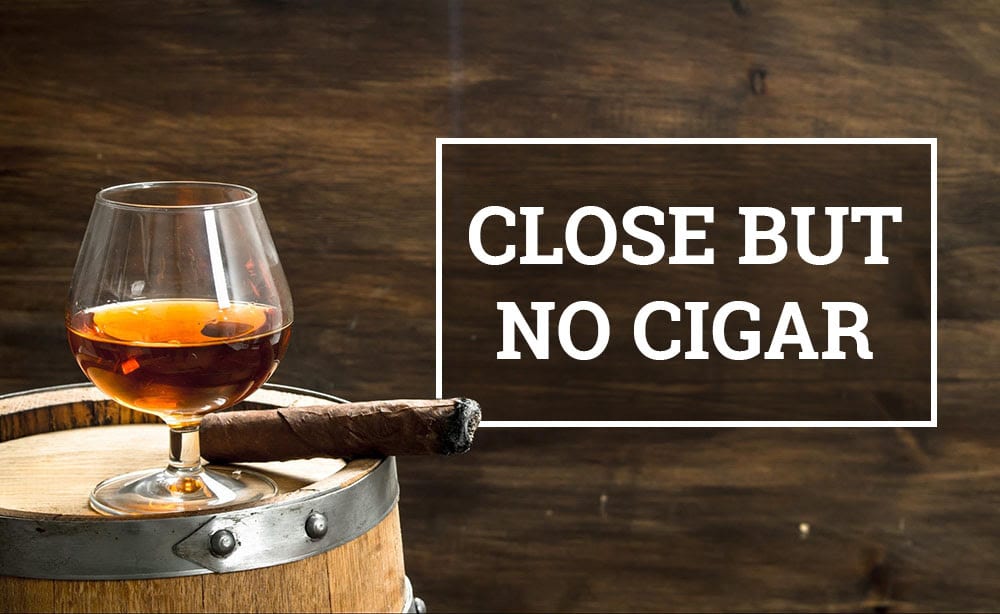If you’ve ever come close to accomplishing something but fell short, you’ve probably heard the phrase close, but no cigar. You probably accept defeat and move on. But have you ever given this commonly used phrase any thought? Why the cigar? Who even requested a cigar? Did you know where the saying “Close, but No Cigar” comes from?
“Close, but no cigar,” and its variant, “nice try, but no cigar,” originated in the United States during the mid-twentieth century, when carnival booths gave out cigars as prizes. To get a cigar, one had to win a game; a close call was not rewarded.
Close But, No Cigar
Close, but no cigar refers to a person who fell just short of a successful outcome and thus receives no compensation. But, in today’s society, the number of people who see a cigar as a reward is probably relatively low, so why do we still say it? Here are the origins of some other well-known idioms.
This term is used when one comes close to success but does not quite make it, resulting in nothing in return. The phrase first appeared in the United States in the twentieth century and is said to have originated from the practice of fairground stalls awarding cigars as prizes. This phrase would describe those who did not win a prize.
The phrase most likely originated in the 1920s, when cigars were given away as prizes at fairs or carnivals. At the time, the games were aimed at adults rather than children. Yes, even in the roaring twenties, most carnival games were impossible to win, prompting the game’s owner to say, close, but no cigar, when the player failed to get enough rings around bottles or fell just short of hitting the target. The saying spread and became well-known as fairs began to travel across the United States.
In Robert Machray’s 1902 book, The Night Side of London, there is also evidence of people handing out cigars as prizes. “Should you score twenty, you will win a cigar,” it says. But you only get nine points. Unaffected, or perhaps encouraged, by this fact, you spend another penny, and another, and another—but you don’t get the cigar, and it’s probably a good thing! There are cigars, and then there are cigars. You keep going, and next, you try your hand at cocoa nuts, skittles, clay pipes, or shooting lanes. And so on—until your supply of pennies and patience is depleted. (Source: Reader’s Digest)
The Phrase Used in Print
The phrase first appeared in print in 1929, unrelated to a fair, as a paragraph heading in the Long Island Daily Press, which described a man failing to win the presidency of a community association. Throughout the 1930s, the phrase grew in popularity and was frequently used in print and movies. Close, Colonel, but no cigar! is a famous line from the film Annie Oakley.
Even though cigars aren’t as popular in today’s culture—and certainly aren’t given out as carnival prizes—it wouldn’t feel right to change the saying to Close, but no giant stuffed animals. (Source: Reader’s Digest)
Image from Writerscentre
